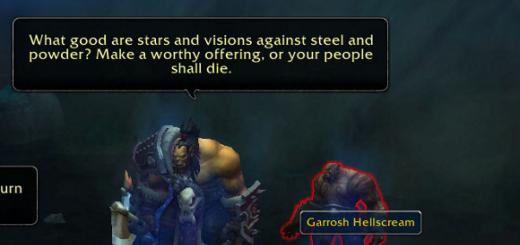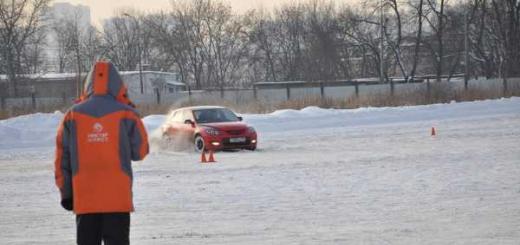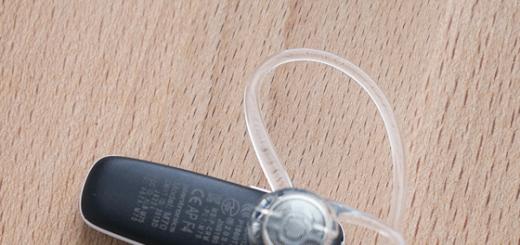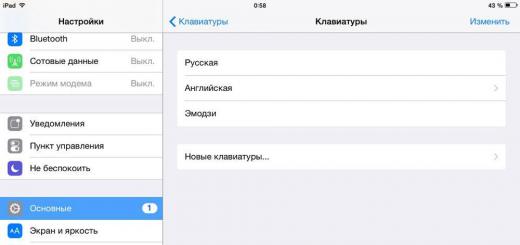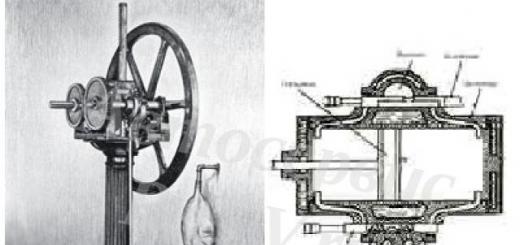my head. 3) Everything passes and not everything is forgotten. 4) The origins of filial feelings for the homeland lie where we are born and live.
From the text, you need to write out the participle with the words to which they refer: And the dawn, lazily walking around, sprinkles the branches with new silver. Brooks, murmuringand meandering and calling to each other, they hurry into the echoing valley ... But the young bride, wandering in the forest until dawn, meanwhile kept walking and walking and came across the tower. help me please
Saturated with rain moisture.
2) An edge without history...
All forest yes forest, swamps,
Bogs, backwaters in alder and reeds
In centennial sycamores...
On distant clouds
Summer sunset beauty and gilding,
warmth and brilliance all around.
3) We go through the forest, black forests.
Here is a mountain, a sandy descent into the valley.
It's evening. On the mountain before us
The forest bristles a new peak.
4) Icy night, mistral
(He hasn't died yet.)
I see in the windows shine and distance
Mountains, naked hills.
Guys, help (I'll give all 20 points). They asked an essay-reasoning, I don't know how to do it, help me write it. Subject: Express your opinion about your life positionThe little business man raised his head. “For fifty-four years I have been living on this planet, and in all the time I have been disturbed only three times. For the first time, twenty-two years ago, a cockchafer flew towards me from somewhere. He made a terrible noise, and then I made four mistakes in addition. The second time, eleven years ago, I had an attack of rheumatism. From a sedentary lifestyle. I don't have time to walk around. I am a serious person. Third time... here it is! So, therefore, five hundred million ... - Millions of what? same, so small, shiny. - Bees? - No, no. So small, golden, every lazy person looks at them and starts dreaming. And I'm a serious person. I have no time to dream. - And, the stars? - That's it. Stars. - Five hundred million stars? What are you doing with them? - Five hundred one million six hundred twenty two thousand seven hundred thirty one. I'm a serious person, I love accuracy. - So what are you doing with all these stars? - What do I do? - Yes. - I don't do anything. I own them. - Do you own the stars? - Yes. - But I have already seen the king, who ... - Kings do not own anything. They only rule. That's a completely different matter. - And why do you need to own the stars? - To be rich. - And why be rich? - To buy more new stars if someone discovers them. "He talks almost like a drunkard," thought Little prince. th prince and business man (in the text):
Guys, help (I'll give all 40 points). They asked an essay-reasoning, I don't know how to do it, help me write. Subject: Express your opinion about your life positionthe little prince and the business man. (according to the text)
The business man raised his head. “For fifty-four years I have been living on this planet, and in all the time I have been interrupted only three times. For the first time, twenty-two years ago, a cockchafer flew towards me from somewhere. He made a terrible noise, and then I made four mistakes in addition. The second time, eleven years ago, I had an attack of rheumatism. From a sedentary lifestyle. I don't have time to walk around. I am a serious person. Third time... here it is! So, therefore, five hundred million ... - Millions of what? same, so small, shiny. - Bees? - No, no. So small, golden, every lazy person looks at them and starts dreaming. And I'm a serious person. I have no time to dream. - And, the stars? - That's it. Stars. - Five hundred million stars? What are you doing with them? - Five hundred one million six hundred twenty two thousand seven hundred thirty one. I'm a serious person, I love accuracy. - So what are you doing with all these stars? - What do I do? - Yes. - I don't do anything. I own them. - Do you own the stars? - Yes. - But I have already seen the king, who ... - Kings do not own anything. They only rule. This is a completely different matter. - And why do you own stars? - To be rich. - And why be rich? - To buy more new stars if someone discovers them. “He talks almost like a drunkard,” thought the Little Prince.
GU " secondary school No. 16 of the Education Department of the Akimat of the city of Kostanay "
Russian language lesson in 5th grade
on this topic:
"Spelling NOT with Verbs"
Prepared by: Vinnikova L.V. teacher of Russian language and literatureKostanay, 2011
Topic: Spelling NOT with verbs.Purpose: - to introduce the role of the NOT particle, to give the concept of exception verbs; to form spelling skills NOT with verbs;
Develop the ability to build sentences, spelling vigilance, enrich lexicon children;
Cultivate feelings of mutual assistance, mutual assistance, love for nature.
Type of lesson: generalization and systematization of knowledge.
MTO: textbook, whiteboard, test sheets, flipchart (if you work with an interactive whiteboard).
During the classes:
Org. moment. Greetings. Checking those present.
Presentation of the topic and objectives of the lesson.
know: spelling rules NOT with verbs;
be able to: correctly write NOT with verbs;
work: actively.
Knowledge update.
* Frontal survey.
What is a verb? ( independent part speech that denotes an object or state and answers the questions what to do? what to do?)
What are the constants morphological features does the verb have (view and conjugation)
How to determine the conjugation of a verb? (by stressed personal ending, by infinitive)
How to define a species? (on issue and meaning)
What inconstant signs does the verb have? (gender, number, person, tense)
What forms of tense does the verb have? How to define them? (three forms of time? Past tense, present and future. Determine by questions and values)
** Morphological analysis(by options)
Thumbelina decided 3 to leave the forest. She began looking for a place to live.
Explanation of the new topic.
Each on the desk has a cut piece of paper with the phrase "NOT with verbs is written separately!". Task: quickly assemble a phrase from cut syllables and read aloud (see Appendix No. 1).
Verse:
Didn't learn, don't do it
If you don't know, don't rush.
With verbs alone
Do NOT write a part.
Is NOT always written separately with verbs? (no, since there are cases of continuous spelling NOT with verbs)
Yulia Usadova's fairy tale tells us about this. .
"Once a young Verb fell in love with a beautiful NOT particle. He courted her for a long time, walked on her heels, but was NOT a capricious particle and did not pay any attention to the Verb in love. "I can't live without you!" - said the Verb. And NOT answered: “Until you find at least one word that proves that you love me so much and cannot live, I will not be with you!” And the Verb wandered through all the dictionaries and reference books, but, having not found anything, completely desperate, went to NOT. Learning that the search for the Verb ended unsuccessfully, NOT got angry and shouted: "I am indignant! I hate!" Then the Verb ran up to NOT, hugged her tightly: “Well, you see, you yourself proved everything!”
Exercise number 1: Write down a poem. Do not write separately with the verb.For example: did not go, did not know.
Just be aware of the exceptions:
Hated, resented.
Consolidation.
The word is not a sparrow, it will fly out - you will not catch it. If there is no bread, there will be no dinner. If you don't grease the wheels, you won't go fast. If you don't sow, you won't reap the harvest. Lazy man can't get well and is unwell.
Exercise number 3. We write down the verbs, distributing them into two columns:
NOT separate NOT merged
Didn’t read, dislike, didn’t say, hates, didn’t go, be indignant, perplexed, not see, not good, not see the light, not close, not in time.
And did you know that…
Are written togetherVerbs with a compositeunder - givingverb the meaning of incompleteness, insufficiency of action (this prefix is often antonymous in meaning to the prefixre-:
We write down: undersalt - oversalt, underestimate your capabilities - overestimate your capabilities.
should be distinguished Verbs with prefix under- indicating that the action was performed below the norm, and consonant with them Verbs with prefix before- preceded by a negative not and which, in combination with a particle, indicate that the action has not been completed:
We write down: neglect the child(to allow an oversight in supervision) - don't watch the show until the end(do not finish watching); The unemployed were constantly malnourished. - Children often did not finish their soup at dinner.
Exercise number 4. Think up and write down three sentences with NOT with verbs on the topic "Vacation". (Example sentences: We don’t go to school during the holidays. We don’t sit at home for lessons, but run on the street. We don’t solve problems, we don’t write dictations, we don’t do exercises. But we rest with might and main, play and have fun.)
Exercise number 5. We listen to riddles, we guess. We write only NOT with verbs.
So that autumn does not get wet, does not become sour from the water, he turned the puddles into glass, made the gardens snowy (frost). He is everywhere, in the field and in the garden, but he will not get into the house. And I won't go anywhere as long as it's raining. Run, run, don't run. Flows, flows, does not flow out (river). Always in the mouth, not swallowed (tongue). He does not eat, does not drink, he sings sonorous songs. And from lesson to lesson gives his voice (call). They don’t feed oats, they don’t drive with a whip. And how it plows - it drags seven pounds (tractor).
Knowledge control.
Test.
1 option
You take continuous spelling NOT with verb:
A) (does not) live B) (does not) wash
C) (not) good D) (don't) know
Specify the separate spelling NOT with the verb:
A) (not) healthy B) (not) willing
C) (not) love D) (not) drink
In the words (not) rage, (not) hate, (not) yearn - NOT written ...
A) together B) separately
C) with a hyphen
(Not) froze it is written ...
A) together B) separately
Specify the incorrect spelling NOT with the verb:
A) did not read B) do not sew up
C) to be perplexed D) fail
Option/No.
Homework.
§§64, 94, exercise 991 (995), know the answers to the questions on pp. 288 (287).
Summing up the lesson.
Application No. 1.
NOT with gla Goal amiwrite etsya once del but!References:
Sabitova Z.K., Pavlenko V.K. Russian language. Textbook for grade 5 secondary school. – Almaty: “Atamұ ra", 2010.
Getmanova V.S. A magical journey to the land of knowledge. - Shymkent: "Shikula and K", 2007
http://nachalka.uz/publications/183_poslovicy_i_pogovorki_na_vse_pravila_russkogo_yazyka.html
http://claw.ru/book11/017.htm
NOT with verbs
Novik Nadezhda Grigorievna,
teacher of Russian language and literature
GBOU JSC "Vychegodskaya SKOSHI"
LESSON OBJECTIVES
- to form the skill of spelling NOT with verbs; introduce exception verbs;
- justify separate and continuous spelling of NOT with verbs;
- consolidate information about the verb, the ability to distinguish the verb from other parts of speech.
1. The verb is .............. part of speech:
a) independent; b) official
2. The verb answers the questions:
Which one then? which? which?; b) who? what?; c) what did you do? what is he doing? what will he do?
3. The verb means:
a) an object; b) the action of the object; c) a sign of the subject
4. The verb has three tenses: ......................., ................. and ......................... .
REPEAT "Story-message about the verb."5. Verb conjugation is:
a) changing verbs according to persons and numbers; b) changing verbs by gender; c) changing verbs by tense
6. Only in the past tense do verbs change:
a) by cases; b) by birth; c) by persons and numbers
7. Past tense verbs are formed using .........
8. In a sentence, most often the verb is ........... and forms with the subject ..............
Orthoepic five-minute.Library, kilometer, made, understood, percentage, started, call, meatballs, wide, old, put, contracts, understood, started, call, created.
Solve the riddle.
All objects are brought to life
Gets them all involved
Tells them what to do
Strictly monitors it
He has three times
And he knows how to hide.
RESEARCH Dictionary work:
Perplexed -
to doubt, to wonder, not to understand.
resent- to be indignant, to express extreme displeasure.
captivity to compel, to compel to do something against one's will.
get sick- not feeling well.
OUTPUT
1) Particle NOT with verbs is written separately.
2) Some verbs without NOT are not used, therefore they are written together.
Physical education minuteNow guys get up
Raise your hands slowly
Squeeze your fingers, then unclench,
Hands down and so stand.
Leaning right, left
And we're back to business.
FIXING
1. The word is not a sparrow, it will fly out - (not) you will catch. 2. (Not) there will be bread - (not) there will be dinner. 3. (Not) lubricate the wheels - you will (not) go fast. 4. (Not) sow - harvest (not) reap. 5. I’m lazy about everything (not) maybe yes (not) healthy.
6. (Don't) put off until tomorrow what you can do today.
7. In a strange house (not) indicate.
8. (Do not) praise yourself, there are better than you.
CHECK!
1. The word is not a sparrow, it will fly out - you won’t catch it. 2. There will be no bread - there will be no dinner. 3. If you don’t grease the wheels, you won’t go fast. 4. If you don’t sow, you won’t reap the harvest. 5. I'm lazy and I can't get well.
6. Don't put off until tomorrow what you can do today.
7. Do not indicate in someone else's house.
8. Do not praise yourself, there are better than you.
Creative work.
Put off until tomorrow what you can do today
They indicate in a strange house.
A loafer is always healthy.
You can buy health with money.
Lies make a person beautiful.
Creative work.
Don't put off until tomorrow what you can do today
In someone else's house do not indicate.
A lazybones is always unwell.
Money can't buy health.
Lies don't make a person happy.
The game "Be Careful!"
(Don't) rush, (don't) yearn, (don't) know, (don't) fill up,
(not) guess (not) to speak, (not) to see, (not) to laugh, (not) to love, (not) to say goodbye.
TEST YOURSELF! INDEPENDENT WORK
1. He (won't) leave his old parents without help and attention, (won't) offend the weak, (won't) humiliate himself with hypocrisy and flattery.
2. A conscientious person means a decent, honest person, endowed with a sense of dignity, justice and kindness.
4. A conscientious person will (not) deceive, (not) steal, (not) betray.
5. At work (not) cheating.
TEST YOURSELF!
3. A conscientious person gives others the light and warmth of humanity.
4. A conscientious person will not deceive, steal, or betray.
- He will not leave his old parents without help and attention, he will not offend the weak, he will not humiliate himself with hypocrisy and flattery.
5. Don't cheat at work.
2. A conscientious person means a decent, honest person, endowed with a sense of dignity, justice and kindness.
NOT with verbs
1 option.
(Don’t) think, (don’t) stop work, (don’t) ruin nests, (don’t) attract attention, (don’t) buy a book, (don’t) get to know the author, (don’t) yearn for an enemy, (don’t) believe in a story.
Option 2.
(not) talk to a person, (not) answered the question, I (not) greet, (not) decide, (not) see, (not) know the weather, (not) was afraid of an opponent, (not) lose a second.
TEST YOURSELF!
1 option.
To be perplexed, not to stop working, not to destroy nests, not to attract attention, not to buy a book, not to get acquainted with the author, to be indignant at an enemy, not to believe in a story.
Option 2.
Do not talk to a person, did not answer the question, I am unwell, do not dare, hate, do not know the weather, was not afraid of an opponent, do not waste a second.
HOMEWORK
§ 108, p. 242. (learn the rule);
Compose and write a memo:
1. Rules of conduct on the street.
2. In public transport.
Reflectionlearned well
well understood and can be put into practice
well done but have questions
much is unclear
DEVELOPMENT OF A RUSSIAN LESSON
(FSES, EMC "Perspektiva", Grade 3)
Chalikova Lyubov Ivanovna,
MOU Lyceum №9,
Volgograd
Topic: Particle Spelling « not" with verbs
Target: to form new knowledge, skills and abilities on the topic: "The spelling of the particle "not" with verbs"
Tasks: educational:
update knowledge about the concept of "service parts of speech"
not with verbs
teach:
- determine the spelling of a verb with a particlenot and justify your opinion
- tell the rule for writing a particlenot with verbs
- write verbs with particlenot
- perform a learning action using a rule;
- within the framework of the educational dialogue, formulate clear statements using the terms
developing:
develop the ability to observe language material, analyze, compare material;
develop the ability to work in pairs: listen to the opinion of a friend, discuss the problem, come to a consensus;
develop skills of control and self-control
educational:
bring up positive attitude to study, evaluate their work and the work of classmates
form motives learning activities
Type: lesson introducing new knowledge.
Forms of work: frontal, steam room, individual
Basic Tutorial: "Russian language grade 3" part 2, R.N. Buneev, E.V. Buneeva, O.V. Pronina, M .: Education, 2013
Required technical equipment: computer, multimedia projector, screen, students' laptops,ready-made electronic educational resources
Organizing timeThe goal to be achieved by the student:
Prepare for productive work in the classroom.
The goal the teacher wants to achieve is:
To help prepare students for productive work.
Tasks:
Create a positive emotional mood;
Help to take the correct working posture;
Remind them of the importance of accurate work in a notebook.
Methods:
Verbal, explanatory and illustrative, contributing to the activation of cognitive processes.
The teacher greets the students.
The teacher creates a positive emotional mood.
Look at each other, smile.
Please turn to me and give me your smile. After all, a smile adorns a person, gives everyone a mood of joy. Only this mood we will need today for work.
The teacher draws the students' attention to the self-assessment sheet. At each stage of work, children evaluate their work.
The students greet the teacher.
Updating of basic knowledge
Goals for students:
Update knowledge of service parts of speech, the ability to divide them into groups, write beautifully.
Goal for the teacher:
Check students' knowledge of the service parts of speech, identify difficulties in the activities of students.
Work organization methods:
Verbal,
partially - search, contributing to the activation of cognitive processes.
Incentive methods:
- praise.
Assessment Methods:
Self-assessment with signal cards
On the desk:
1. And, from, about, a, under, but, on, over, in front of, behind, not
(Do not) be proud of the title, but be proud of the knowledge.
- Take a close look at the first line. What groups can these words be divided into?
– What can you say about the words that are written?
Right. Why are they called that? Write them down side by side: first conjunctions, then prepositions and particle not.
(Examination)
Students answer the teacher's questions:
These are prepositions, conjunctions.
These are the official parts of speech.
They serve to connect words in a sentence.
Children write:
And, a, but; from, about, under, on, over, before, behind; not.
Formulating the topic of the lesson, setting the goal and objectives of the lesson
Purpose for students:
Formulate the topic of the lesson and determine the purpose of the lesson.
Goal for the teacher:
Lead students to the formulation of the topic of the lesson and setting the objectives of the lesson.
Work organization methods:
Verbal,
search.
1. Do not be proud of the title, but be proud of the knowledge.
– Now read the proverb. How do you understand its meaning?
What small word (particle) helps create the opposite meaning?
– Give me the part of speech before whichNot costs.
How is the particle NOT written with a verb?
Write down the proverb
underline the studied spellings.
The teacher makes changes to the record.
What do you think isnot ? What kind of work does she do?
Let's play a game: Denial
to be - not to be, to give - not to give, to love - not to love .. .
Name the topic of the lesson.
The teacher posts a note on the blackboard: Hastica NOT with verbs
State the objectives of the lesson.
- Tricky question of our lesson:
Separate or merged? (The teacher puts a “tricky question” on the board.)
Children explain the meaning of the proverb.
Particle NOT
Part of speech is a verb, because denotes an action and answers the question: what do you do?
Apart.
Write offproverb, pemphasize spelling.
Work: opposite meaning, negation
Students conclude thatnot - it is too service unit speech.
Name the topic.
Today we must learn how to write verbs with a particle correctly.not .
"Discovery" of new knowledge
Purpose for students:
Determine the spelling of a verb with a particlenot and justify your opinion
Tell the rule for writing a particlenot with verbs;
perform a learning action using the rule
Write verbs with a particlenot ;
Within the framework of the educational dialogue, formulate clear statements using terms.
Tell the rule for writing a particle NOT
Goal for the teacher:
enter a particle spelling rulenot with verbs
Work organization methods:
Verbal,
Search
- collision
1. Acquaintance with the rule in the textbook.
2. On interactive whiteboard proverbs missing a particlenot :
Who ... sows, he ... reaps.
Hands ... stretch out, and from the shelf ... you get it.
Without labor, nothing ... is given.
They plow the arable land - with their hands ... they wave.
Read the proverbs carefully. What do you want to say?
What need to do?
The teacher writes a particlenot .
What is the meaning of verbs with a particlenot ?
The teacher asks students to write down two proverbs (of their choice) in a notebook.
They make a conclusion.
3. - Read another proverb:
Lazy man can't get well and is unwell.
What did you notice?
Why do you think NOT is written together with verbs?
To resolve the situation of contradiction, we turn to the spelling dictionary.
Pupils go to the board and check the spelling of words in the dictionarycan't get well.
There are verbs that are not used without NOT.These are exception verbs.
Write these verbs in your notebook.
underlinenot .
The teacher offers to explain the meaning of the verbs:to be unwell, to be indignant, to be unhappy, to dislike
Make up and write sentences with these verbs in your notebook.
They conclude: There are verbs that are not used without NOT.These are exception verbs.
Students get acquainted with the rule from the textbook: p.88.
Children read proverbs, explain their meaning, explain the spelling NOT with verbs.
It is necessary to add the particle NOT.
opposite meaning
Write down two proverbs (optional) in a notebook.
Students conclude: verbs with NOT are written separately.
Herenot with verbs it is written together.
They make assumptions.
Make notes in your notebook and read the sentences.
Primary fastening
Purpose for students:
- practice spelling verbs with the particle not.
Goal for the teacher:
create conditions for the formation of the ability to correctly write verbs with the particle not.
From the suggested words of different parts of speech, write out the verbs with the particlenot , expanding brackets:
(didn’t) live, (didn’t) goofy, (didn’t) yearn, (didn’t) clumsy, (didn’t) lie, (didn’t) see, (didn’t) be, (didn’t) want, (didn’t) will, (didn’t) will, (not) eat, (not) share .
Students find verbs and explain their spelling:(didn’t) live, (didn’t) yearn, (didn’t) lie, (didn’t) see, (didn’t) be, (didn’t) want, (didn’t) want, (didn’t) eat .
Independent work.
Purpose for students:
- be able to apply the acquired knowledge in practice.
Goal for the teacher:
- identify gaps, correction
Methods:
verbal, visual
collision.
Independent work.
Write by opening brackets.
1 option.
Who does not work shall not eat. It is commanded to regale, but (not) to will is a sin. Whoever offends whom, he (not) hates him.
Write by opening brackets.
Option 2.
The truth (does not) burn in fire and (does not) sink in water. (Not) to harass - (not) means to get sick. You will (not) spoil porridge with butter.
Mutual verification.
Homework
Target: to consolidate the ability to write correctly not with verbs.
P.88 remember the rule, p.89 No. 160
Reflection
Target:
- students' awareness of their learning activities, self-assessment of the results of their own and class activities.
Methods:
assessment and self-assessment
What were your goals at the beginning of the lesson?
Have you been able to achieve your goals?
What new did you learn in the lesson?
What secrets of the Russian language have been discovered?
For better memorization, I offer you a reminder poem, but some words are omitted in it. Your task is to complete it with words. ___ learned- __ do,
___ know- __ hurry,
With verbs ___________
Write the particle ____.
The teacher thanks the students for their active work in the lesson.
